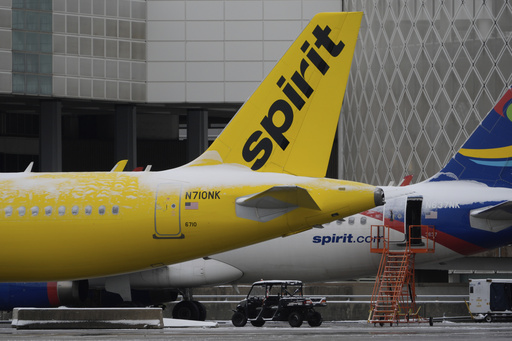Spirit Airlines has once again turned down a third acquisition proposal from its budget competitor, Frontier Airlines, choosing instead to concentrate on its own strategy for emerging from bankruptcy and securing its financial stability.
The latest bid, similar to previous offers, suggested that Spirit shareholders receive $400 million in debt alongside a 19% equity share in Frontier Group Holdings Inc., the parent company of Frontier Airlines. Frontier stated late Tuesday that they believe merging with Spirit would have provided greater value than what Spirit might achieve independently. They added that despite their interest, they are responsible acquirers focused on maximizing returns for Frontier shareholders in what is described as a dynamic market atmosphere.
Months ago, Frontier’s earlier proposal to merge with Spirit was swiftly declined. Spirit Airlines has indicated that while they did present a counterproposal to Frontier this month, it too was dismissed. The airline has a pivotal court hearing looming regarding its reorganization plan this Thursday, and they expect to finalize the restructuring process during the first quarter of the upcoming year.
Frontier’s initial merger attempt with Spirit took place in 2022 but was ultimately unsuccessful as they were outbid by JetBlue. However, the Justice Department intervened to obstruct JetBlue’s $3.8 billion offer, arguing that it would lead to higher prices for Spirit’s customers, who rely on low-cost fares. A federal judge sided with the Justice Department’s concerns in January, resulting in JetBlue and Spirit abandoning their merger efforts just two months later.
Spirit, recognized as the largest budget airline in the United States, filed for bankruptcy protection back in November, having previously negotiated terms with bondholders. Since early 2020, the airline has incurred losses exceeding $2.5 billion and is facing significant debt payments—more than $1 billion due in 2025 and 2026.
Meanwhile, larger U.S. airlines have begun catering to some of Spirit’s budget-friendly clientele by introducing their own stripped-down ticket options. Additionally, fares within the U.S. leisure travel sector, which constitutes Spirit’s primary market, decreased last summer due to an oversupply of flight options.
As of Wednesday, shares of Frontier Group experienced a 3% decline before the market opened, signaling potential investor concerns amidst the ongoing developments in the airline industry.




